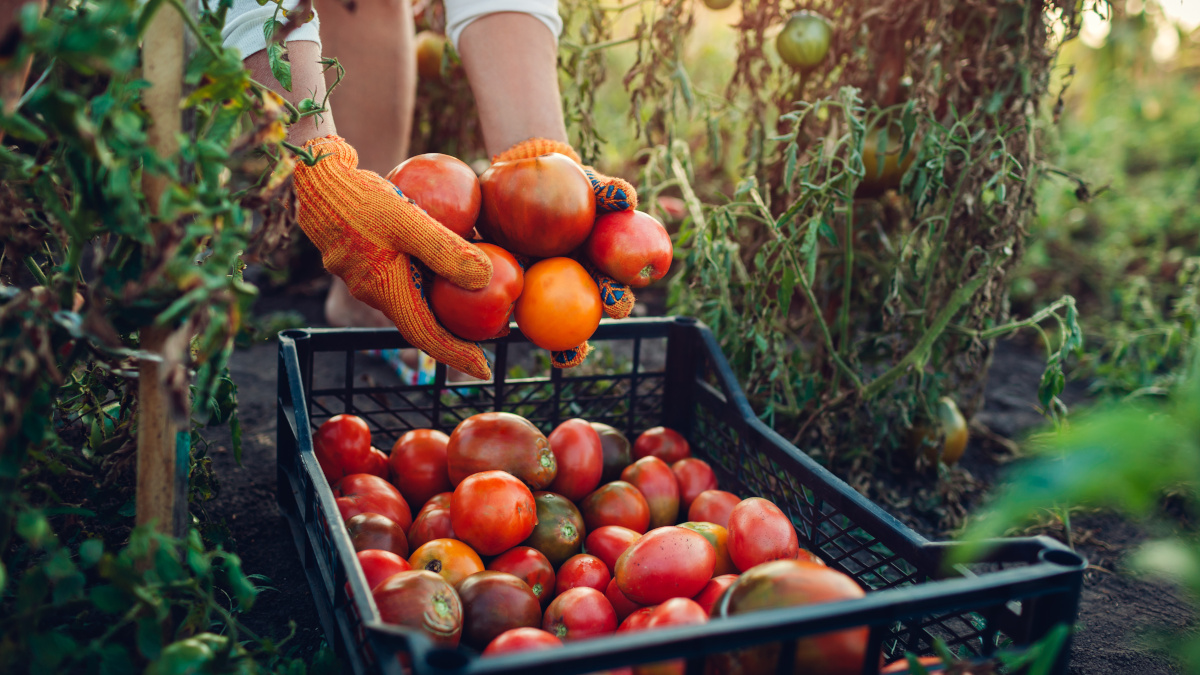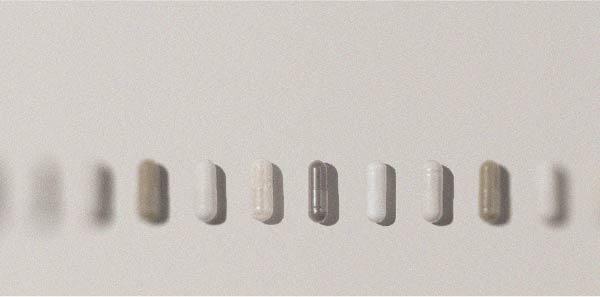Is organic food really better for your health?
Organic farming is better for the environment, but is it also better for your health? Exposure to pesticides, nutritional quality, etc.: we give you the lowdown on eating organic.

Organic farming: there’s organic and organic …
Organic products coming from the EU
The rules governing organic foods are consistent throughout Europe, with a few exceptions. In fact, member states may, if they wish, impose stricter standards on farmers and the agro-food industry than those applied in Europe as a whole. In France, for example, tomatoes grown in heated greenhouses in winter cannot be labeled ‘organic’, unlike in the rest of Europe (1).
In general, European organic products must, as a minimum, respect the following rules:
- no synthetic plant protection products;
- no GMOs;
- at least 95% of ingredients must be organic in the case of processed products;
- animals’ well-being must be respected.
Organic outside the European Union
Things get a bit more complicated when it comes to products imported into Europe. Even though the Ecocert organisation has offices all over the world, and European regulations require strict criteria to be met before an organic label can be put on imported products, an audit by the European Court of Auditors in 2012 pointed to a number of shortcomings (2-3).
In an effort to address these anomalies, the EU is due to publish new, more stringent regulations in 2022, in order to ensure consumers are better informed.
So there is organic, and organic: buying seasonal organic fruits and vegetables in a European country guarantees that European regulations are adhered to; buying unseasonal or exotic fruits and vegetables, even if they’re organic, does not guarantee the absence of any synthetic plant protection products or GMOs.
Lower overall exposure to synthetic pesticides
Logically enough, all the studies conducted on fruits and vegetables grown organically in Europe have demonstrated lower levels of exposure to synthetic pesticides - hardly surprising given that they’re banned under European rules (4).
Organic products contain 75% fewer pesticides on average than their conventionally-grown equivalents (5).
And if traces of pesticides are still detectable, it’s simply because organic foods are not grown in sterile cleanrooms, but in fields or greenhouses, close to conventional farming operations.
Quite simply, eating organic products allows you to reduce your exposure to pesticides not only from your food but also from the atmosphere and there is thus an indirect positive effect associated with organic farming.
Probable link between pesticides and cancer
While much more research needs to be done, it seems that regularly consuming organic products may reduce the risk of cancer by 25%, particularly breast cancer in menopausal women and lymphomas (6).
Potential link between pesticide exposure and obesity?
It’s clear that those who eat organic products have a specific sociological profile: a healthier than average diet, fewer refined sugars and processed products, more physical activity, higher socioeconomic status, etc. You’d therefore expect to find a lower incidence of obesity among consumers of organic products than in the rest of the population.
But another study comparing two cohorts eating the same, good-quality diet, one with conventionally-grown products and the other with organic products, still found a lower incidence of obesity in the second group (7).
By way of explanation, the researchers hypothesised that the organic foods might contain more omega-3 and antioxidants, which could be enough to protect against obesity (8).
Higher nutritional quality fruits and vegetables
There’s good reason to think this because, while it’s still a subject of debate within the scientific community, numerous studies seem to conclude that organic products contain more polyphenols, vitamin C, iron and magnesium.
The reason for this high content of polyphenols and vitamins, minerals and trace elements in general, may be because organic fruits and vegetables have to withstand greater environmental stress and strengthen their defenses accordingly (9).
In addition, the absence of synthetic plant protection products appears to be good for the microbiome - the bacterial flora present on the peel of fruits and vegetables – which may be more diverse on organic fruits and vegetables. And that’s also good for our intestinal microbiota (10).
Beware of generalisations
At the same time:
- it will take many more studies to really establish the benefits of organic products for our health;
- even an organic product, if it’s consumed out of season and sourced from the other side of the world, will not provide the above-mentioned nutritional quality because it will have been picked before reaching maturity and/or it will not have benefited from optimal growing conditions;
- the most important thing is to eat a healthy, balanced diet with the minimum of processed foods, but containing healthy fats, carbohydrates and proteins.
Small selection of organic supplements
Organic black garlic
Black garlic has been used for thousands of years in Asian cooking, but it was only in the 2000s that this aged garlic product gained a global reputation, following the development of an innovative process in Japan (11).
Slow-cooked and caramelised, with hints of balsamic vinegar, prunes and liquorice, black garlic provides all the positives garlic has to offer, with none of the negatives (your friends and colleagues will be delighted). The process even enhances garlic’s existing health benefits, with black garlic containing significant amounts of S-allyl-cysteine (12).
The organic black garlic supplement Organic ABG10+ thus helps to support cardiac and vascular health, maintain normal blood lipid levels, immune and respiratory health, and protect against bacteria, all while offering antioxidant benefits.
Organic royal jelly
Rich in 10-hydroxy-2-decenoic acid (10H2DA), royalisin, royalactin, proteins, carbohydrates, numerous essential amino acids, minerals, trace elements, vitamins and acetylcholine, royal jelly is the food produced by honey bees to feed the queen bee. It’s royal jelly which is responsible for the queen bee’s longevity and vigour (13).
Unlike other royal jellies on the market, Organic Royal Jelly 4% is organically produced in Europe, ensuring a minimal pesticide content.
Organic MCT oil
Medium-chain triglycerides have a long history of use in hospital settings to help balance the diets of those with fat absorption problems. MCT oils are easily absorbed and also facilitate the absorption of a number of fat-soluble nutrients (14).
Produced from organically-grown coconuts, the product Organic MCT Oil is standardized to 98% caprylic acid (C8). It’s an excellent accompaniment to the keto diet.
Organic relaxing essential oils
Essential oil of true lavender helps you to relax and sleep better, essential oil of mandarin, with its refreshing, soothing scent, is good for well-being, and essential oil of caraway helps to relax the muscles: together, these three oils form a synergistic blend perfect for promoting relaxation (15-17).
In the supplement Organic Relaxing Oil Blend, these three essential oils are produced from organically-grown plants, to provide maximum benefit, without harming either the environment or your health.
References
- https://ec.europa.eu/info/food-farming-fisheries/farming/organic-farming/organics-glance_fr
- https://ec.europa.eu/info/food-farming-fisheries/farming/organic-farming/trade_fr
- https://www.eca.europa.eu/Lists/ECADocuments/SR12_09/SR12_09_FR.PDF
- Barański, M.; Srednicka-Tober, D.; Volakakis, N.; Seal, C.; Sanderson, R.; Stewart, G. B.; Benbrook, C.; Biavati, B.; Markellou, E.; Giotis, C.; Gromadzka-Ostrowska, J.; Rembiałkowska, E.; Skwarło-Sońta, K.; Tahvonen, R.; Janovská, D.; Niggli, U.; Nicot, P.; Leifert, C. Higher Antioxidant and Lower Cadmium Concentrations and Lower Incidence of Pesticide Residues in Organically Grown Crops: A Systematic Literature Review and Meta-Analyses. Br. J. Nutr. 2014, 112 (5), 794–811
- Smith-Spangler, C.; Brandeau, M. L.; Hunter, G. E.; Bavinger, J. C.; Pearson, M.; Eschbach, P. J.; Sundaram, V.; Liu, H.; Schirmer, P.; Stave, C.; Olkin, I.; Bravata, D. M. Are Organic Foods Safer or Healthier than Conventional Alternatives?: A Systematic Review. Intern. Med. 2012, 157 (5), 348–366
- BRADBURY, K. E., BALKWILL, Angela, SPENCER, E. A., et al.Organic food consumption and the incidence of cancer in a large prospective study of women in the United Kingdom. British journal of cancer, 2014, vol. 110, no 9, p. 2321-2326.
- KESSE-GUYOT, Emmanuelle, BAUDRY, Julia, ASSMANN, Karen E., et al.Prospective association between consumption frequency of organic food and body weight change, risk of overweight or obesity: results from the NutriNet-Santé Study. British Journal of Nutrition, 2017, vol. 117, no 2, p. 325-334.
- MIE, Axel, ANDERSEN, Helle Raun, GUNNARSSON, Stefan, et al.Human health implications of organic food and organic agriculture: a comprehensive review. Environmental Health, 2017, vol. 16, no 1, p. 1-22.
- Dangour, A. D.; Dodhia, S. K.; Hayter, A.; Allen, E.; Lock, K.; Uauy, R. Nutritional Quality of Organic Foods: A Systematic Review. J. Clin. Nutr. 2009, 90 (3), 680–685.
- Wassermann, B.; Müller, H.; Berg, G. An Apple a Day: Which Bacteria Do We Eat With Organic and Conventional Apples? Front Microbiol 2019, 10
- MARTÍNEZ-CASAS, Lucía, LAGE-YUSTY, María, et LÓPEZ-HERNÁNDEZ, Julia. Changes in the aromatic profile, sugars, and bioactive compounds when purple garlic is transformed into black garlic. Journal of agricultural and food chemistry, 2017, vol. 65, no 49, p. 10804-10811.
- RYU, Ji Hyeon et KANG, Dawon. Physicochemical properties, biological activity, health benefits, and general limitations of aged black garlic: A review. Molecules, 2017, vol. 22, no 6, p. 919.
- XUE, Xiaofeng, WU, Liming, et WANG, Kang. Chemical composition of royal jelly. In : Bee products-chemical and biological properties. Springer, Cham, 2017. p. 181-190.
- PERVAIZ, Muhammad Ali, KENDAL, Fran, HEGDE, Madhuri, et al.MCT oil-based diet reverses hypertrophic cardiomyopathy in a patient with very long chain acyl-coA dehydrogenase deficiency. Indian journal of human genetics, 2011, vol. 17, no 1, p. 29.
- ALNAMER, Rachad, ALAOUI, Katim, BOUIDIDA, El Houcine, et al.Sedative and hypnotic activities of the methanolic and aqueous extracts of Lavandula officinalis from Morocco. Advances in pharmacological sciences, 2011, vol. 2012.
- FAYED, Sayed A., et al.Antioxidant and anticancer activities of Citrus reticulate (Petitgrain Mandarin) and Pelargonium graveolens (Geranium) essential oils. Research Journal of Agriculture and Biological Sciences, 2009, vol. 5, no 5, p. 740-747.
- SHAHRAJABIAN, Mohamad Hesam, SUN, Wenli, KHOSHKHARAM, Mehdi, et al.CARAWAY, CHINESE CHIVES AND CASSIA AS FUNCTIONAL FOODS WITH CONSIDERING NUTRIENTS AND HEALTH BENEFITS. Carpathian Journal of Food Science & Technology, 2021, vol. 13, no 1.
Keywords
5 Days
great products and prices
great products and prices
Marie
11 Days
Easy to navigate site
Easy to navigate site, had what I was searching for, good price. easy order-check out
James Tucker
17 Days
My skin is clearing up nicely!
Pretty good for my skin so far.
Christian
19 Days
The new packaging is excellent
The new packaging is excellent - finally! No more squashed boxes and torn envelopes.
GORAN
20 Days
Great Product
Great Product
Larry Garrett
25 Days
Quick shipping
Quick shipping; good price. No issues!
Mary McCarty
26 Days
Thr product is very good and is helping…
Thr product is very good and is helping me on my health. Then is always on time
LUGO Luz
29 Days
Buying was fine
Buying was fine. I had problems with the website not recognizing my login info, and had to call to get it fixed. Other than that, everything was good.
David S. Clark
29 Days
Your super maca and super ginseng are…phenomenal
Your super maca and super ginseng are phenomenal supplements that compliment each other when taking them together. Fantastic feeling of well-being and lots of mid day energy without the crash.
Keith Mason
32 Days
I have had amazing results with every…
I have had amazing results with every supplement I've purchased. I am extremely satisfied with this company
kirstin Torres
32 Days
Fine products
Fine products . They are on the leading edge of online supplements. The only issue -so far-is they sometime run out of subscription items.
Jason Argos
34 Days
The ordering process is very user…
The ordering process is very user friendly and the products always come in a timely manner.
CARTER Rhonda
35 Days
The price for Dr
The price for Dr. Pero's AC-11 is reasonable and in line with his views. (my former colleague). Keep it pure.
CAMPBELL Clayton
38 Days
Right on every time.
Right on every time.
Arthur Nicholas
41 Days
They are cheaper than everyone else and…
They are cheaper than everyone else and the shipping was fast. Great company.
Patricia Adams




